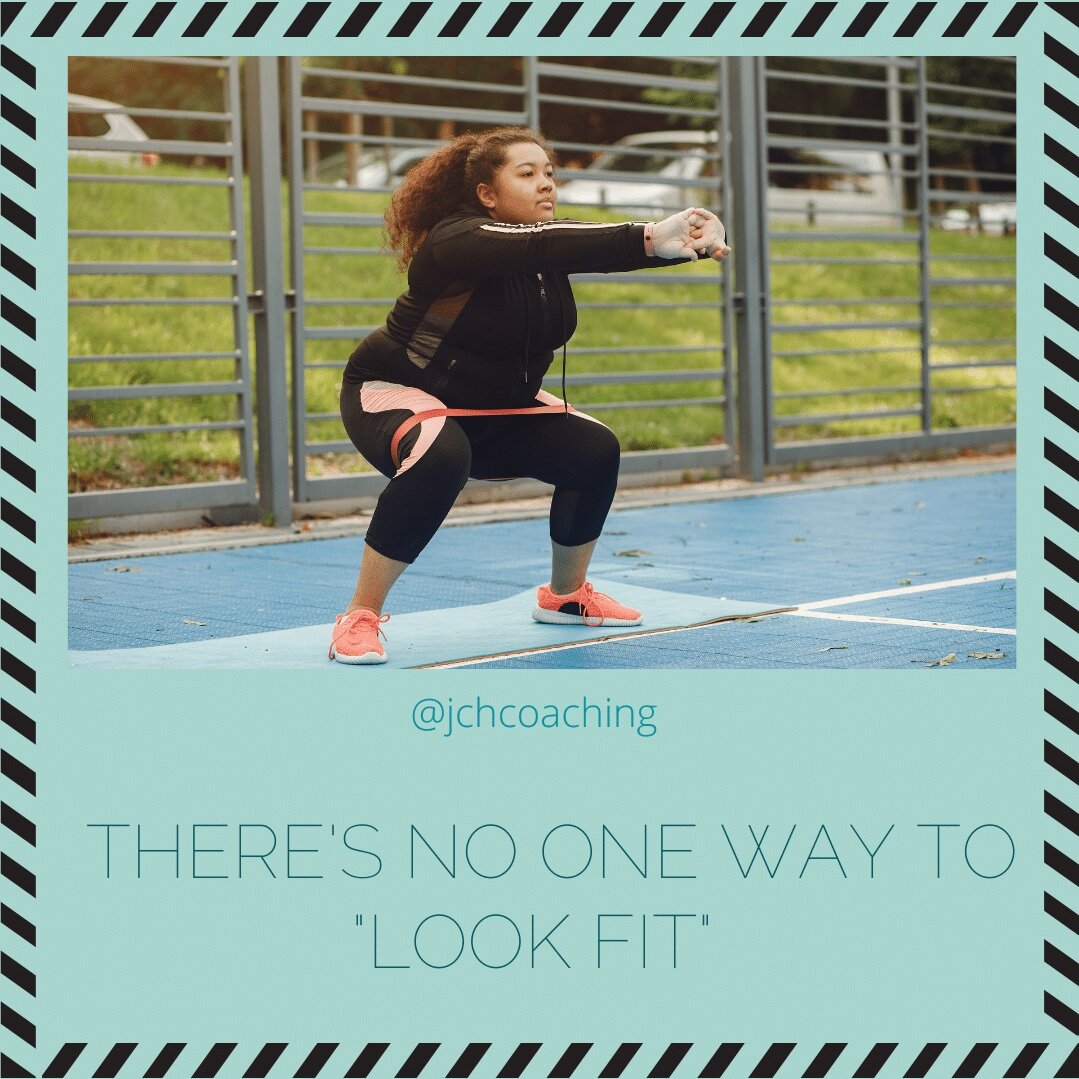What Does “Fit” Look Like?
Trick question! Despite what society tells us, "fit" doesn't have a look.
There's nothing like swimsuit season to make us aware of how our bodies look, and I'm here to tell you that no matter what a person looks like, they probably have some insecurities about it -- even personal trainers and fitness instructors!
I recently saw an article about the 20th anniversary of Zumba, and as some of you know, that was my first professional fitness certification. When I saw the article, I wasn't reminded of the fun dances or the classes I taught, or the years teaching alongside some of my dear friends.
My first thought was actually of the responses I got when I proudly showed people photos of me with my trainer:
"...She doesn't really look like an instructor."
What they meant was: She doesn't look young or white or thin or toned or any of the things that pop up in a Google image search for "Fitness instructor."
Never mind that she was a fantastic dancer who had been trained by the creator of Zumba himself, and who imparted teaching wisdom that I still lean on a dozen years later.
She didn't look "fit." Therefore her expertise -- and the validity of Zumba as an exercise regimen -- was in question.
And therein lies the problem with thinking that "fit" has a certain look, or that people who look "fit" in the conventional sense are automatically qualified to provide fitness or nutrition advice.
There are people who are strong, who move well, who are physically and mentally healthy, who have great endurance -- who all look differently. They might be lean; they might not. They might have visible "toned" muscles; they might not. They might be tall or short or somewhere in between.
And people who are petite and very lean with visible abdominals? Many of them are quite unhealthy. Many are not actually strong; in fact, many women with visible abdominals have restricted themselves so severely to get there that they've ceased to menstruate, which is a sign of malnutrition.
YOU CANNOT TELL HOW FIT OR HOW HEALTHY A PERSON IS BY LOOKING AT THEM.
There is no "look" that automatically tells you whether someone is sticking with a particular diet or doing certain exercises, and there is no "look" that tells you whether someone is a better, more qualified instructor than another.
Everyone's body is different. You might have some influence over your body based on the activities you choose to do, and how consistent you are with movement, nutrition, and sleep, but at the end of the day, a lot of it comes down to genetics.
Some people, myself included, are naturally lean; that doesn't mean I'm a better trainer than anyone else, or that I work harder (although I am a good trainer and I do work hard!) Other people are more predisposed to build muscle; while some can run long distances with ease, and others are naturally flexible.
Just as we all have different physical skills and strengths, we all have different body types. If you Google, "fitness instructor" or "personal trainer," you might think they're all muscle-y white people who are about to compete in a physique competition in a dark gym or on a beach, but in reality, we -- like literally everyone else -- come in all different ages, shapes, sizes, races, ethnicities, sexualities, and socioeconomic backgrounds.
It's hard to maintain a balanced sense of body image as a fitness instructor, because our job is literally to demonstrate exercises while people watch. It's hard when you're a personal trainer, because people assume your body is your business card, which is unfair to many excellent trainers and sets many clients up for failure.
As someone who mostly fits the stereotype of what "fit" looks like, please believe me when I tell you that looking "fit" will not fix any issues you might have with self-confidence or body image. It tells you nothing about your cardio endurance, your muscular strength, your bone density, your mental health, and other more valuable markers of health and wellness.
The best thing we can all do is to stop striving for some whitewashed, commercialized, Kardashianed ideal of what "fit" looks like, and instead work on redefining "fit" to fit our own lives and our bodies.
What can we do to feel stronger? To feel good when we move? To have a better quality of life? To have less mental stress?
What can "fit" actually mean in relation to our own lives?
As a Les Mills instructor, I was taught that my mission was to help "create a fitter planet." By redefining what "fit" means, and who is allowed to use that term for themselves (everyone!), we can create more space for anyone, in any body, to be fit.
When we refuse to define ourselves by what society (aka capitalism and marketing) tells us we should aspire to, we can be free to find what fits us and our lives, and what helps us live them the best way we can, no matter what we look like.
